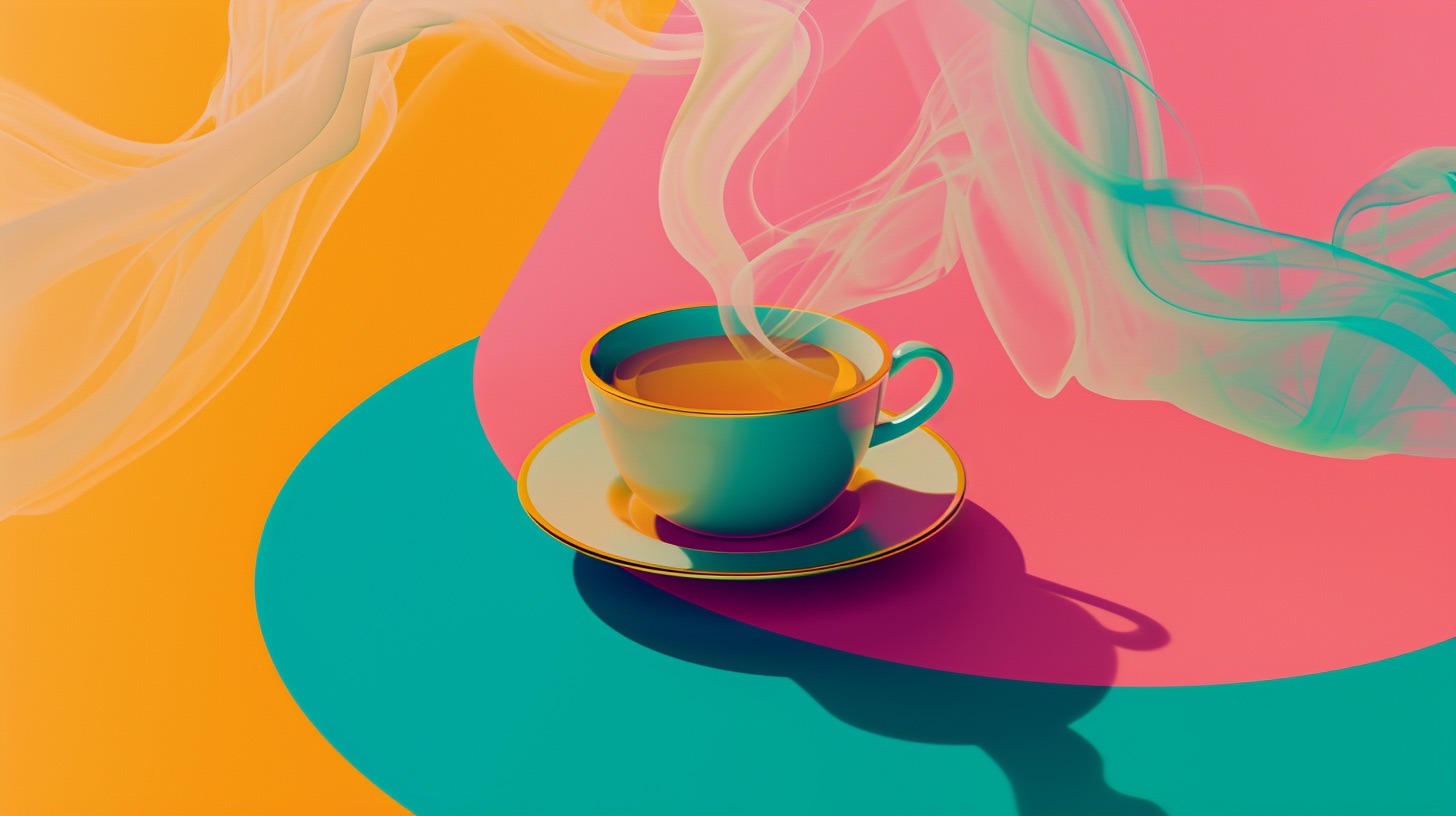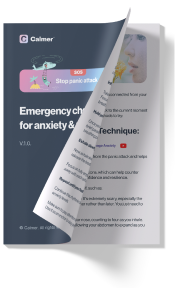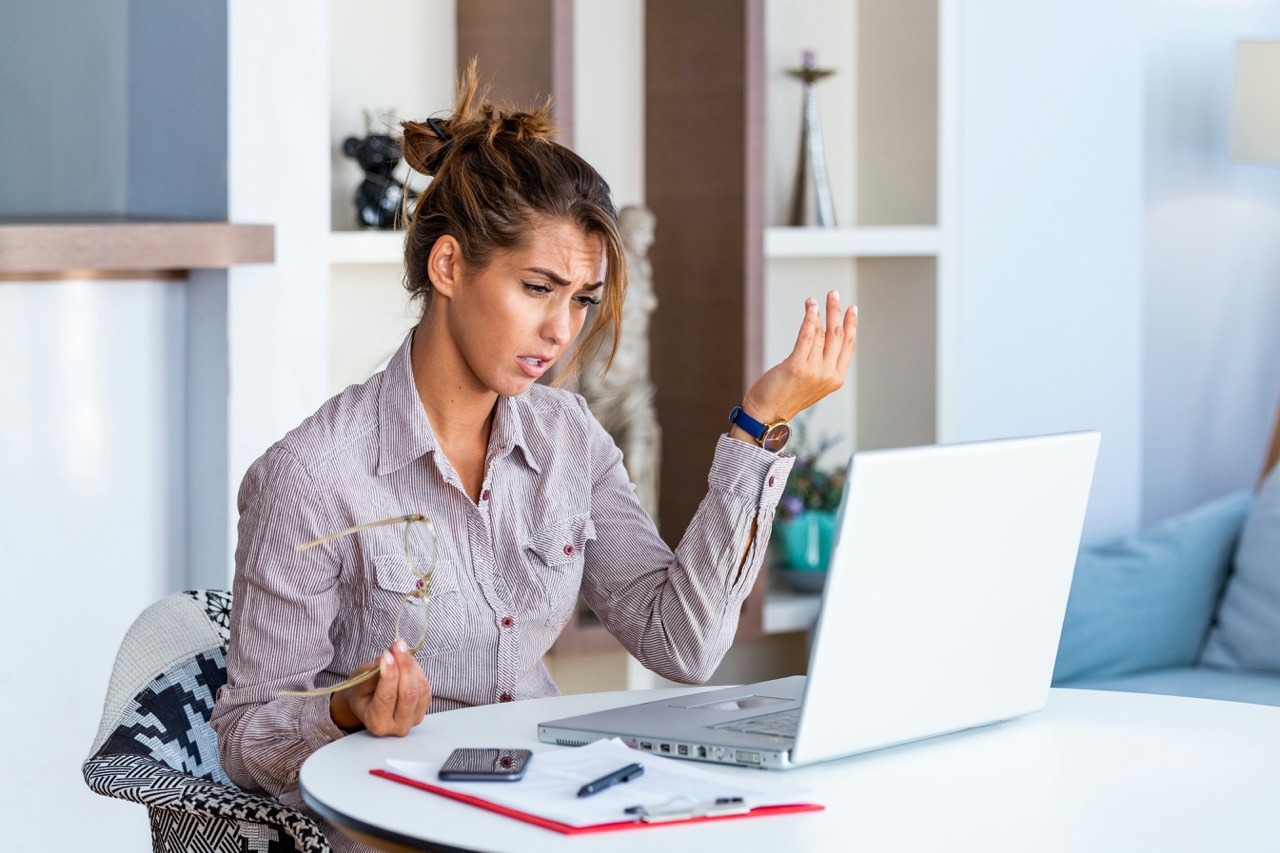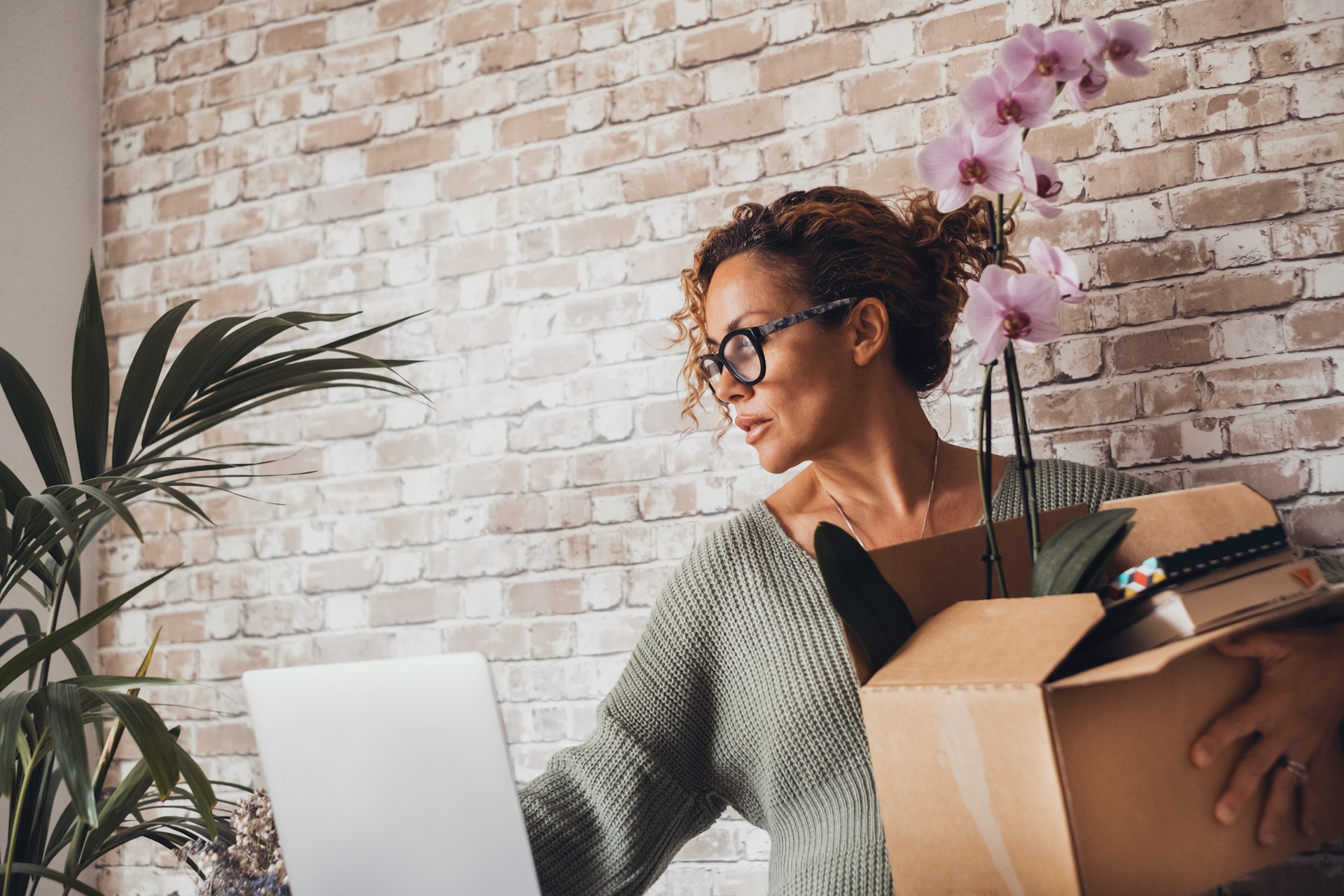In our fast-paced world, where the hum of anxiety often lingers in the background of our daily lives, a simple, ancient remedy for anxiety is still going strong—a good old cup of tea. This article explores how this time-tested beverage can help soothe the nerves and calm the mind. Tea for anxiety has been known for a very long time as an excellent natural remedy, and there are countless historical accounts of its effectiveness.
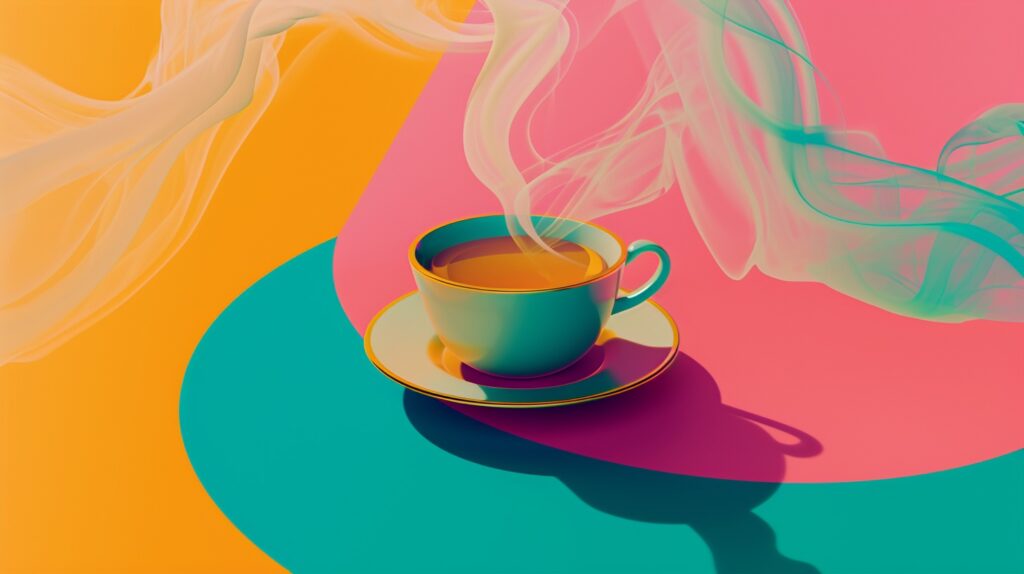
The Historical Roots
Tea has been used as a medicinal aid for thousands of years. Ancient civilizations in China and India used tea not only for its pleasant taste but also for its mental well-being effects. This deep historical connection between tea and health is still recognized in modern times.
Tea’s secrets lie in its complex chemical makeup. Compounds like L-theanine, prevalent in green and black teas, have been shown to have calming effects on the brain by increasing alpha-wave production, which is linked to relaxation. Additionally, tea is a rich source of antioxidants like polyphenols and flavonoids, which are believed to help deal with stress.
Best Tea for Anxiety
Let’s go over the best teas for anxiety and how they can help manage your mood.
- Green tea’s high L-theanine content can help reduce anxiety while promoting relaxation without inducing drowsiness.
- Chamomile Tea is known for its sleep-inducing qualities, chamomile contains compounds that bind to brain receptors like drugs such as Valium, aiding in anxiety reduction.
- While not a sedative, Peppermint Tea can alleviate digestive discomforts often linked with anxiety.
- Lavender Tea is famed for its aromatic qualities, lavender can lower heart rate and blood pressure, aiding in anxiety relief.
- Research indicates that Lemon Balm Tea can decrease cortisol, a stress hormone, and does so without causing drowsiness.
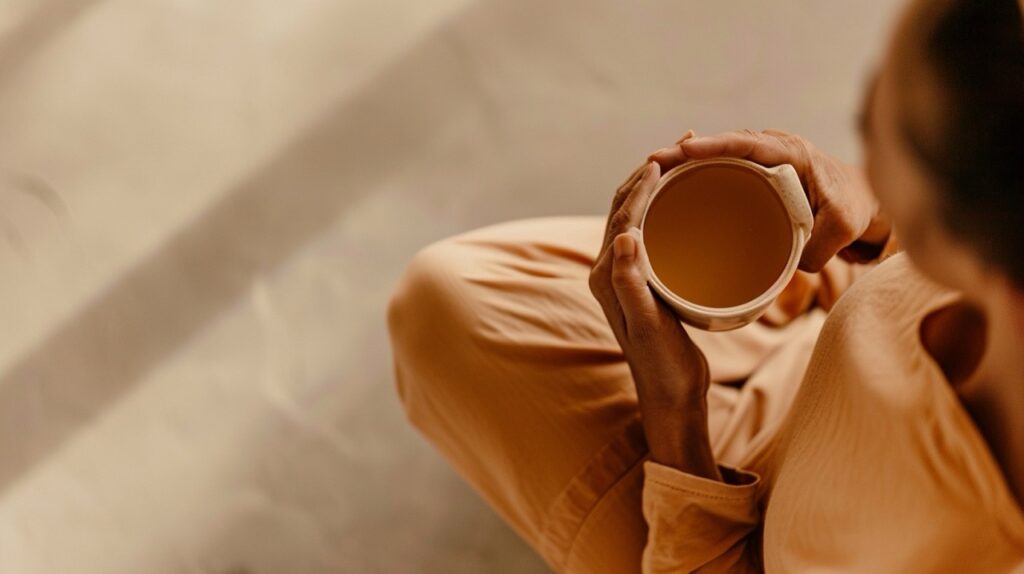
Exploring less common teas like passionflower tea or valerian root tea could also be beneficial. These teas have been used in various cultures for their calming properties, though they are less mainstream.
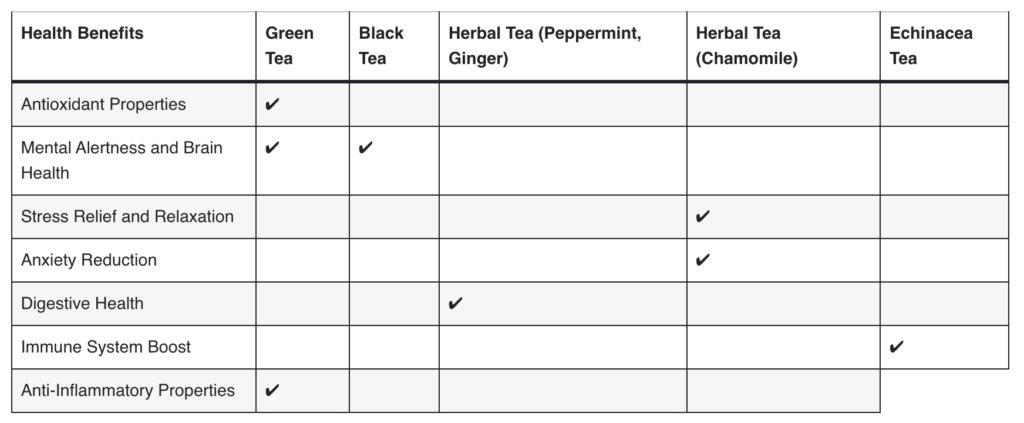
The Ritual of Tea Drinking
The act of brewing and sipping tea is in itself therapeutic. The mindfulness and patience required in tea preparation encourage a slower, more reflective pace, providing a mental respite from the day’s stresses.
To maximize the benefits, proper brewing is key. For instance, green tea is best brewed with water just before it boils, and steeped for 1-3 minutes to avoid bitterness. On the other hand, chamomile releases its full flavor and benefits when steeped in boiling water for 4-5 minutes.
Tea should be viewed as a complement to other anxiety management practices. Pairing tea drinking with yoga, meditation, or professional counseling can amplify its calming effects.
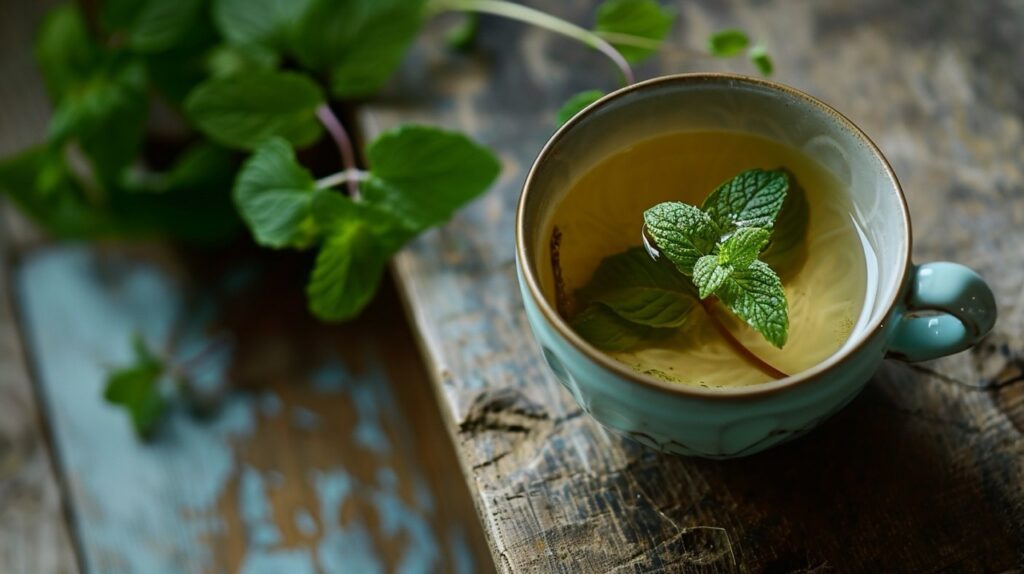
Bonus: Recipe for a Soothing Anxiety Tea
Ingredients:
- 1 tablespoon dried chamomile flowers
- 1 teaspoon dried lavender buds
- 1 teaspoon fresh lemon balm leaves (or dried)
- 1/2 teaspoon dried passionflower
- Honey or sweetener of choice (optional)
Instructions:
- In a small bowl, combine chamomile, lavender, lemon balm, and passionflower.
- Bring water to a boil in a kettle.
- Place the mixed herbs in a tea infuser or teapot. Pour hot water over the herbs and cover. Let it steep for 5-10 minutes.
- Remove the tea infuser or strain the tea into a cup.
- Add honey or your preferred sweetener to taste.
- Sip slowly and relax. This tea is best enjoyed in a calm setting, allowing its soothing properties to work.
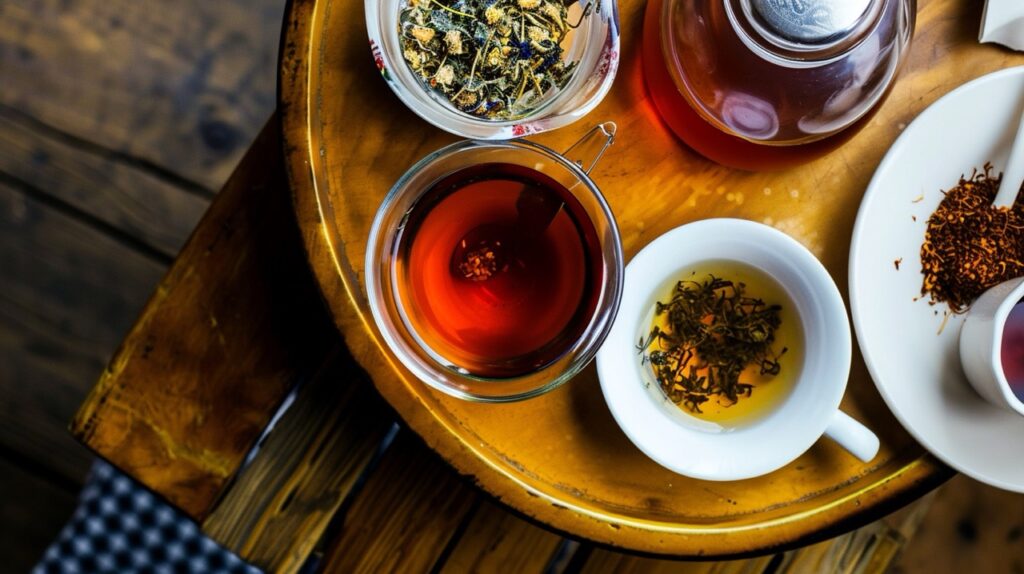
Note: Always consult with a healthcare provider if you have any concerns or if you’re taking medications, as some herbs can interact with medications. This tea is meant to aid relaxation and is not a substitute for professional medical advice or treatment.
Precautions and Considerations
It’s essential to remember that tea is a supplement, not a cure for severe anxiety disorders. Overindulging in certain teas, especially those containing caffeine, can lead to side effects. Always consult a healthcare provider before making herbal teas a regular part of your health regimen, particularly if you have existing health concerns or are on medication.
Tea offers a holistic, gentle approach to managing anxiety. Its historical reverence, scientific backing, and the tranquil ritual of tea drinking make it a unique and effective tool for attaining mental peace. From a morning cup of green tea to a soothing chamomile infusion at night, incorporating tea into daily life can be a simple, yet impactful step towards a calmer mind and a more relaxed state of being.
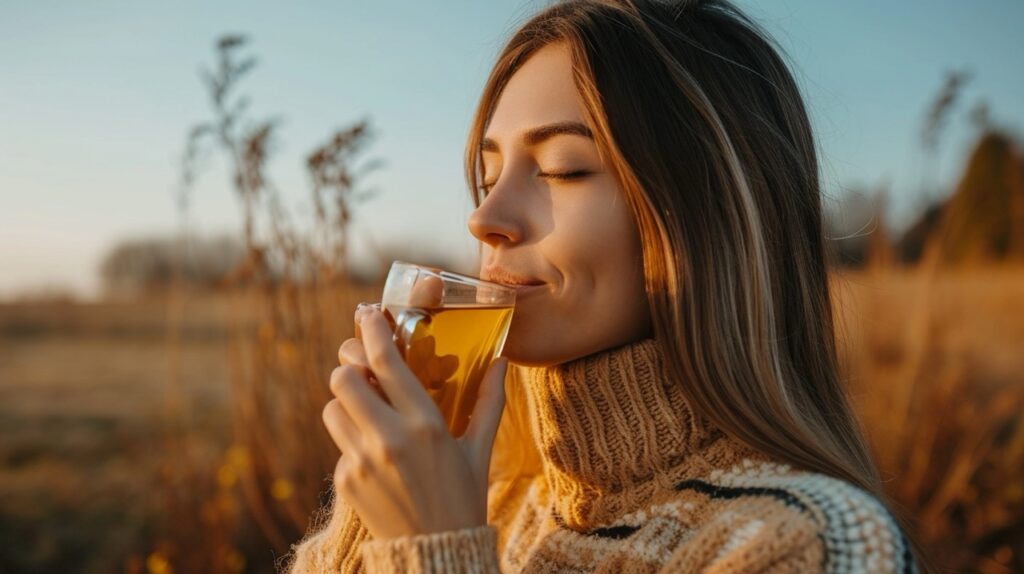
Top 12 Questions About Tea Answered
- What are the Best Teas for Anxiety Relief?
Chamomile, lavender, and green teas are highly recommended for anxiety relief. They contain calming properties that help reduce stress and promote relaxation. - How Does Chamomile Tea Help with Anxiety?
Chamomile tea contains antioxidants and soothing properties that help calm the mind, reduce stress, and improve sleep, making it effective for anxiety management. - Can Green Tea Reduce Anxiety Symptoms?
Yes, green tea is beneficial for anxiety due to its L-theanine content, an amino acid that promotes relaxation and reduces stress without causing drowsiness. - Is Lavender Tea Good for Anxiety and Stress?
Absolutely. Lavender tea, known for its aromatic and soothing properties, helps alleviate stress and anxiety, promoting a sense of calm and well-being. - How Often Should You Drink Tea for Anxiety Relief?
Drinking 1-3 cups of tea daily can be beneficial for anxiety relief. However, moderation is key as excessive consumption can lead to side effects. - Are There Side Effects to Using Tea for Anxiety?
Generally, tea is safe, but overconsumption can cause headaches, dizziness, or digestive issues. It’s important to consume in moderation and consult a healthcare provider if unsure. - Can Herbal Teas Interact with Anxiety Medications?
Some herbal teas can interact with anxiety medications. Always consult a healthcare professional before combining teas with any medications. - Is It Safe to Drink Tea for Anxiety During Pregnancy?
Pregnant women should be cautious. Some teas may not be safe during pregnancy. Consult a healthcare provider before using tea for anxiety when pregnant. - How Quickly Can Tea Alleviate Anxiety Symptoms?
The calming effects of tea can be felt shortly after consumption, typically within 30 minutes to an hour. - Are There Specific Times of Day Best for Drinking Tea for Anxiety?
Drinking tea in the morning or evening can be beneficial. Avoiding caffeinated teas close to bedtime is advised to prevent sleep disturbances. - Can Decaffeinated Teas Help with Anxiety?
Yes, decaffeinated teas like decaf green tea still contain beneficial compounds for anxiety relief without the stimulating effects of caffeine. - Are There Specific Brands of Tea Recommended for Anxiety?
While no specific brand is best for everyone, look for high-quality, organic teas known for their calming properties, such as chamomile or lavender blends.
If you enjoyed this article and want to learn more please check out more articles in our blog.
